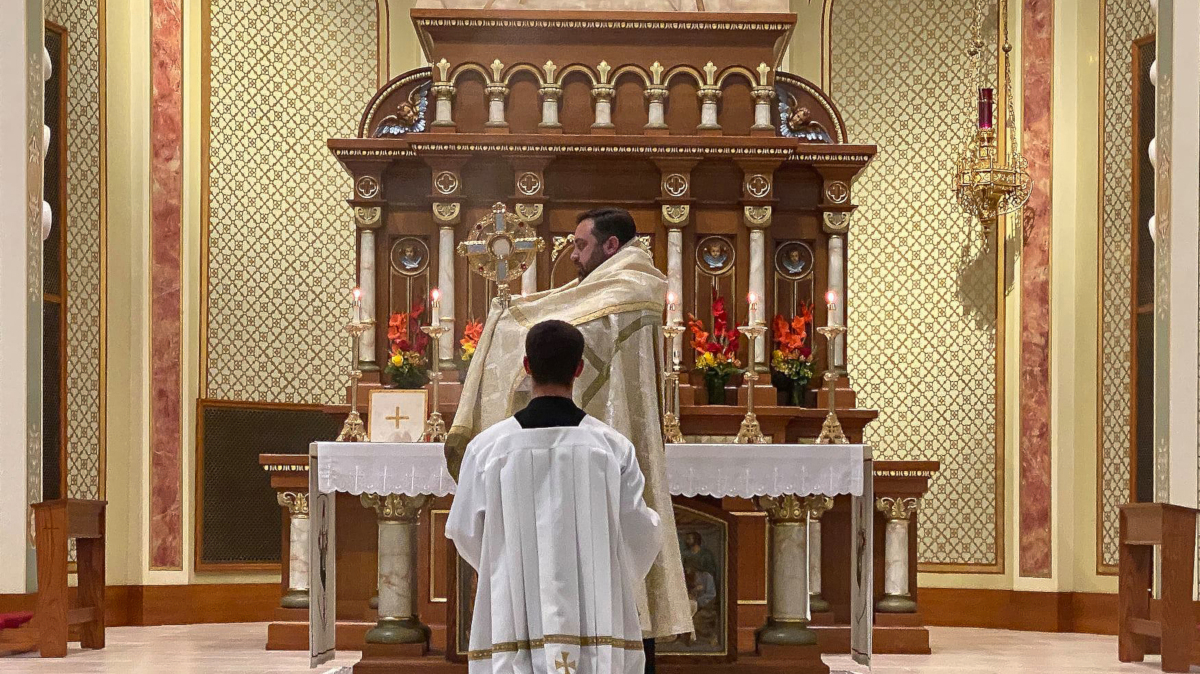
Bishop Donald Hying of the Diocese of Madison recently observed the Feast of St. Paul's Conversion and recounted the apostle's life. | Diocese of Madison Facebook
Bishop Donald Hying of the Diocese of Madison recently observed the Feast of St. Paul's Conversion and recounted the apostle's life.
“Today we honor the conversion of Saint Paul the apostle," Hying said in a Facebook video. "To my knowledge, it’s the only feast day honoring the conversion of someone, and it points to the remarkable significance of Paul and the life of the early Church."
According to Brittanica, St. Paul the Apostle, whose original name was Saul of Tarsus, was one of the early Christian leaders and is recognized as the second most influential figure in the history of Christianity after Jesus.
Paul, a first-century tent maker, spent over half of his life as a Pharisee, persecuting members of the early Christian movement.
"Here is a man as Saul who persecuted Christians, who saw them as heretics to the Jewish faith, who sought to stamp out this Christian, this Jesus movement, and he has this dramatic conversion on the road to Damascus," Hying said.
According to Catholic Culture, Paul's conversion to Christianity is remembered on Jan. 25 as the Feast of Saint Paul the Apostle's Conversion came as a result of a vision he reportedly saw on his journey to Damascus in which God revealed Jesus to him as his son.
Following this vision, Paul traveled to Jerusalem to contact Jesus' apostles; he then spent the remainder of his years evangelizing and writing.
While he is credited with authoring thirteen of the New Testament's twenty-seven books, it is likely that some of these works were written by his followers, as only seven of his thirteen letters are regarded as authentic.
In the Acts of the Apostles, Paul describes his conversion, stating that he lost his sight after witnessing a brilliant light when God appeared to him.
Following his blindness, a man named Ananias invited Paul into his home and baptized him. Paul then explained how, following his baptism, scales began dropping from his eyes as he regained sight.
"He’s baptized, his blindness is lifted, he chooses the name Paul, and he begins to preach, first of all to his fellow Jews, but later to the non-Jews in his founding of communities and in his epistles which make up a significant portion of the New Testament," Hying said. "We really have the first Christian theologian, first person who reflected intellectually on the implications of the Christ event."
Paul's missionary journeys led him to Asia Minor and southern Europe, where he converted many people but also produced a great number of enemies and detractors.
"Think about this," Hying said. "Paul did not know Jesus in the flesh, he never heard him preach, he never saw his miracles, he never met him on earth and secondly, the Gospels weren’t written, so he didn’t have this blueprint as we do to understand Christ; he simply spent time with the apostles, he listened to them, he learned from them."
Paul was martyred in Rome around the year 66 A.D., and his relics are preserved at the Basilica of St. Paul.






 Alerts Sign-up
Alerts Sign-up